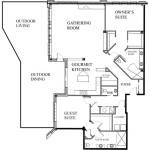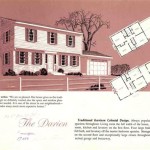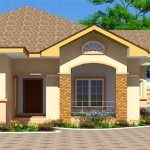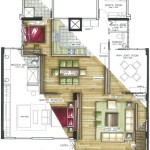Home Plans With Finished Basements: Considerations For Essential Aspects
Finished basements have become increasingly popular in recent years, offering additional living space, entertainment areas, and even potential rental income. If you're considering a home plan with a finished basement, it's essential to understand the crucial aspects that affect its design and functionality. Here are some key points to consider:
1. Legal Building Codes And Zoning Restrictions
Before starting any construction, it's essential to check with your local building department to ensure your plans comply with building codes. These codes regulate various aspects of basement construction, including ceiling height, egress requirements, and ventilation. Additionally, zoning restrictions may limit the use of the basement, such as prohibiting commercial activities.
2. Egress And Natural Light
Adequate egress is crucial for safety in the event of an emergency. Basement plans should include at least two separate means of escape, typically a staircase and an exterior door or window. Natural light is also essential for a comfortable and inviting basement space. Consider incorporating windows or light tubes to bring in sunlight.
3. Ceiling Height And Layout
Ceiling height is a significant factor in creating a livable basement space. Most building codes require a minimum ceiling height of 7 feet, but 8 feet or higher is recommended for optimal comfort. The layout of the basement should consider the intended purpose of the space and provide sufficient room for furniture, storage, and circulation.
4. Plumbing And Electrical
Proper plumbing and electrical systems are essential for a functional basement. Plumbing plans should include drainpipes, water supply lines, and fixtures if a bathroom or kitchenette is included. Electrical plans should provide adequate lighting, power outlets, and separate circuits for heavy appliances or entertainment systems.
5. Insulation And Moisture Control
Insulating the basement walls, ceiling, and floor is crucial for temperature control and energy efficiency. Adequate insulation helps maintain a comfortable temperature in the basement and reduces heating and cooling costs. Moisture control is also essential to prevent dampness and mold growth. Consider installing vapor barriers, dehumidifiers, and proper drainage systems.
6. Ventilation And Air Quality
Proper ventilation is essential for maintaining good air quality in the basement. Fresh air should be able to enter the space through windows, vents, or an HVAC system. Ventilation helps remove moisture, odors, and potential pollutants, creating a healthy environment.
7. Additional Considerations:
Storage: Basements offer ample storage space for seasonal items, bulky belongings, or even a home gym. Plan for built-in shelves, closets, or a designated storage area.
Entertainment: Basements can be transformed into dedicated entertainment spaces. Consider incorporating a home theater, game room, or lounge area with comfortable seating and a sound system.
Guest Bedroom: If the basement has sufficient space and egress, it can be converted into a guest bedroom. Ensure there is adequate natural light, privacy, and closet space.
Rental Income: Finished basements can potentially generate rental income. Consider designing a separate entrance and kitchenette to create a self-contained living unit.
By carefully considering these essential aspects, you can create a functional, comfortable, and enjoyable finished basement space that adds value to your home.

How To Plan For A Finished Basement Chiefblog

Home Plans With Finished Basements

Finished Basement Floor Plans Http Homedecormodel Com Layout

Compact House Plan With Finished Basement 23245jd Architectural Designs Plans

House Plans With Basements Dfd Blog

Basement Floor Plans Types Examples Considerations Cedreo

Home Plans With Finished Basements

How To Create A Great Living Space For Finished Basement Layout

Finished Basement Layout Idea

Stylish And Smart 2 Story House Plans With Basements Houseplans Blog Com








